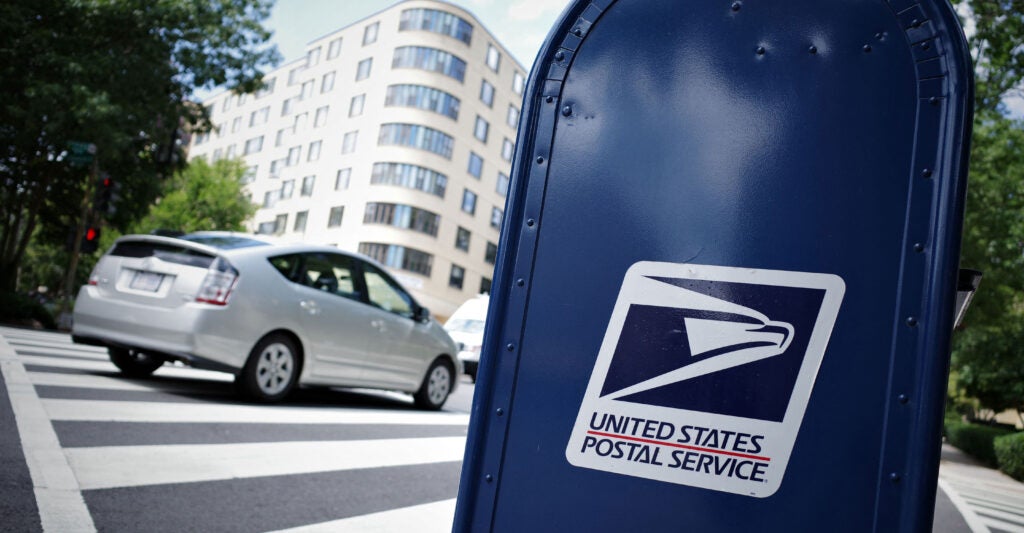Wisconsin election officials have until Sept. 19 to distribute requested absentee ballots. That’s when the bad news begins.
North Carolina authorities planned to ship ballots on Sept. 6. That’s been postponed indefinitely, to remove Robert F. Kennedy Jr. as an option.
Absent that wrinkle, North Carolinians would have started to vote four days before Sept. 10’s Kamala Harris-versus-Donald Trump debate. That would have been as sick, twisted, and un-American as a jury deliberating before hearing the prosecution and defense cases.
What the hell is the rush?
Tarheels notwithstanding, Wisconsinites do not need to select the next leader of the free world 47 days before Election Day. Virginia similarly will disgrace itself on Sept. 20. Michigan’s self-debasement follows, on Sept. 26.
These swingy states, and others soon thereafter, will make this momentous decision—and determine control of the Senate, House, governor’s mansions, and city halls—long before mind-changing news breaks. That could include policy proposals, riveting ads, economic data, gaffes, or scandals that could make mail-in voters want to recast their ballots.
Too late!
Almost always, once voters submit mail-in ballots for tabulation, that’s it—never mind their fervent pleas to change their choices.
The cancer of mail-in ballots metastasizes from there.
Thirty-three election administrators from 26 states wrote Postmaster General Louis DeJoy on Wednesday “to express our ongoing concerns about the United States Postal Service’s (USPS) performance as we approach the Nov. 5, 2024, General Election.” The signatories complained that “election officials in multiple states report receiving anywhere from dozens to hundreds of ballots 10 or more days after postmark.” Furthermore, “ballots sent to election offices are being returned to the voter with the election office address marked as undeliverable.”
The letter also cited “ballots being deliberately held to remediate erroneous billing issues, significantly delayed, or otherwise improperly processed.” Blaming “training-related issues,” the communiqué notes, “these are not one-off mistakes or a problem with specific facilities. Instead, it demonstrates a pervasive lack of understanding and enforcement of USPS policies among its employees.”
Secretary of State Scott Schwab, R-Kan., contacted DeJoy on Monday about the aftermath of its Aug. 6 primary vote.
“Multiple county election officials have notified my office that ballots were received from the local post office days, if not weeks, after they were placed in the custody of the USPS under the assumption that they would be received and counted by county election officials,” Schwab wrote.
“The Postal Service’s failure to deliver as promised has disenfranchised approximately 1,000 voters in Kansas,” Schwab continued. “That means that 2% of ballots transmitted by mail in Kansas were not counted due to USPS administrative failures.”
Schwab’s disgust with the USPS rose to frontier days levels when he declared on X: “The Pony Express is more efficient at this point.”
The U.S. Postal Service’s inspector general audited 15 mail-processing facilities and 35 delivery units in 13 states and Puerto Rico during the primary elections last February and March. According to the inspector general’s July 30 report, 97.01% of 33,042,496 ballots transmitted to voters arrived on time, as did 98.17% of the 10,258,169 ballots that they entrusted to boards of elections.
In other words, 987,970 or 2.99% of these ballots reached voters too late. Likewise, 187,724 or 1.83% of these ballots returned to election officials after their legal deadlines. (That 1.83% sloth factor is eerily close to the 2% that Schwab observed in Kansas. If nothing else, the post office is consistent.)
“We identified processes and policies that could pose a risk of delays in the processing and delivery of Election and Political Mail,” the inspector general’s audit states. “Further, we identified issues related to some Delivering for America operational changes that pose a risk of individual ballots not being counted.”
The inspector general found a postal venue where, on primary Election Day, “personnel stopped segregating the ballots about four hours prior to when ballots needed to be received at the board of election offices.” Even worse, “local management at one facility stated they were not aware primary Election Day was that week.”
If repeated by Nov. 5, such incompetence could prove conclusive. Consider these 2020 swing-state margins of victory:
Donald Trump: North Carolina, 1.34%
Joe Biden: Georgia, 0.23%; Arizona, 0.30%; Wisconsin, 0.63%; and Pennsylvania, 1.16%
Had the Postal Service delivered a hypothetical 1.83% of completed ballots too slowly for tabulation (if at all), one or more of these toss-up-state results could have switched. It is no far stretch to imagine that tardy mail-in ballots sank Trump’s reelection.
By the Postal Service’s admission, failure is not an option. It’s a given.
“What should the average voter think about the U.S. Postal Service’s own figures?” asks Veronica Lakeworthy, a southern California clean-ballot activist and member of the Murrieta-Temecula Republican Assembly. “Inefficient election-mail handling can swing the results by excluding YOUR VOTE!”
The inspector general believes the Postal Service is making progress on eight of 10 recommendations for improvement.
Fingers crossed.
But remember: This is the same Biden-Harris administration that allowed in 323,000 unaccompanied illegal-alien minors and now cannot find them.
The mail-in ballot malignancy goes far beyond hapless, but honest, postal workers. Security-technology expert and election-integrity advocate Jay Valentine of Fractal Computing LLC and Omega4America.com estimates that 3.5 million mail-in ballots will reach phantoms at unqualified swing-state addresses. These include seven “voters” registered at a vacant lot in Reno, Nevada, and 143 at industrial facilities in Hennepin County, Minnesota, among numerous such cases.
Unless Republican strategists and attorneys immediately insist that county clerks send zero voting materials to these ineligible addresses, GOP candidates and Trump himself could die politically in November from Stage 4 mail-in ballot cancer.
We publish a variety of perspectives. Nothing written here is to be construed as representing the views of The Daily Signal.
